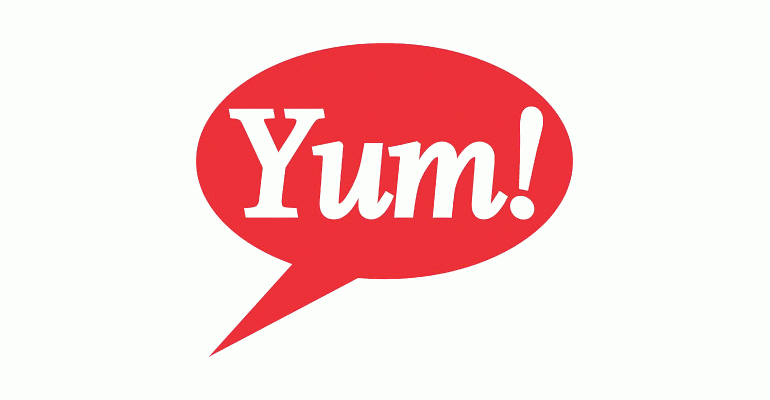Louisville, Ky.-based Yum Brands, which invested $200 million in Grubhub in 2018 to help expand its U.S. delivery network, is suing the third-party delivery company for breaching the parties’ five-year food delivery contract by “unilaterally imposing a new pricing structure” to the company’s franchisees without warning.
The suit comes a day after Grubhub was purchased by Just Eat Takeaway.
“Grubhub’s improper efforts to rid itself of a deal it no longer wanted and to line its pockets will cause enormous harm to consumers at a time when they can least afford it,” the suit, filed June 11, states. “Grubhub’s brazen action will result in an increase of nearly 40% in the fees consumers pay for Grubhub delivery of plaintiffs’ product.”
A Grubhub spokersperson said the Chicago-based operator “vigorously” denies the allegations in the complaint.
“It is unfortunate that Yum has taken this step and we are very sorry about the situation Yum franchisees are in with millions of dollars now at risk especially in the midst of this challenging environment,” according to the statement. “We're happy to work with Yum to resolve our contract dispute, but we intend to ensure that Grubhub and its stakeholders are protected against Yum's breach of the exclusivity provisions of the agreement.”
According to the lawsuit, Grubhub told Yum in a letter that they were violating an exclusivity agreement by working with other third-party delivery operators including Uber Eats and Postmates.
During the pandemic, many restaurant chains added multiple third-party operators to expand their reach. Yum said it was working with Grubhub in early 2020 "to expand the availability of their products to consumers through delivery services" from other third-party providers.
"This process accelerated once the pandemic took hold," Yum said in the suit. "The pandemic increased the importance, for consumers and small-business restaurant owners alike, of reliable and accessible delivery across every part of the country."
Yum maintains that working with other delivery companies was allowed in their master agreement as long as Yum maintained other provisions such as giving Grubhub exclusivity to Taco Bell and KFC nationwide advertising.
Pizza Hut, which uses Grubhub's marketplace but does its own delivery, has a separate agreement with the delivery operator.
"Grubhub has also sent messages threatening to increase pricing at Pizza Hut; these messages make no sense because Pizza Hut pricing is regulated by separate agreement," Yum said.
In 2018, the delivery race reached intense levels. At the time, Yum Brands, under the leadership of then-CEO Greg Creed, made the bold move to invest in Grubhub over other players.
Having an investment stake meant Yum could negotiate better economics for its franchisees to ensure success.
The suit highlights for the first time what kind of fee advantage Yum divisions were receiving.
Franchisees paid a processing fee of 3.05% plus 30 cents per transaction and received “a 0% marketing commission and a 0% delivery commission,” according to the suit.
Marketing fees typically cover the cost of ordering food through the Grubhub app, often referred to as the marketplace.
Diner fees, which cover the last-mile delivery costs, appear to be the point of contention.
In a June 8 letter submitted as part of the suit, Grubhub informed Taco Bell and KFC franchisees that "a few changes are coming to our relationship."
Grubhub said it would collect a 17% commission fee to cover diner fees, which can be offset by either marking up menus 17%, or by charging a service fee or a combination of both, according to the letters.
The lawsuit comes a day after Grubhub was sold to Netherlands-based Just Eat Takeaway in a deal valued at $7.3 billion.
"The Taco Bell, KFC and Pizza Hut brands are known for, and pride themselves on, providing consumers with great value, so they are at particular risk for reputational harm from unilaterally imposed price increases," Yum states in the suit.
This is a developing story. Stay tuned for updates.
Contact Nancy Luna at [email protected]
Follow her on Twitter: @fastfoodmaven

